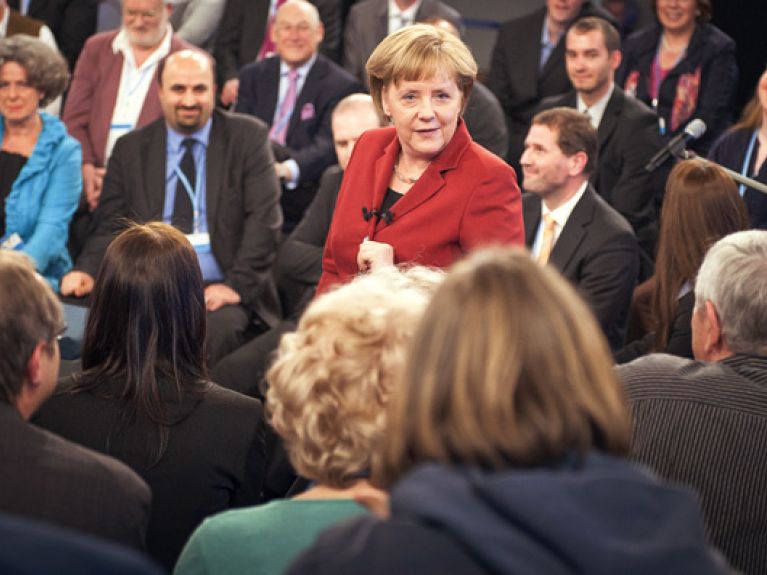“Standing up for our values”
Among other things, the agenda of the G7 summit will focus on women, environmental protection and the fight against tropical diseases.

The monumental scenery matches the enormous challenges: although there are still a few months to go before the G7 summit at Schloss Elmau in the Bavarian Alps on 7 and 8 June, expectations of the meeting are already high, and they are rising in the face of the geopolitical situation. Among the leading economic nations, the member states of the G7 are united by shared values. The G7 are pioneers in resolving major challenges of globalisation. Germany, which currently holds the G7 presidency and is hosting the 2015 summit, wishes to continue making an active contribution here.
The issues on the agenda of the meeting with the heads of state and government of Canada, France, Italy, Japan, the UK and the USA are very concrete. This not only applies to the “traditional” summit topics of the world economy and foreign and security policy. The German organisers are also conscious of the expectations that, for example, the development community has of the summit. Among other things, therefore, the summit will be focusing on the agenda for the time after the expiry of the United Nations Millennium Development Goals in 2015.
“We face challenges – not only with regard to the economy, but also when it comes to standing up for our values,” said Federal Chancellor Angela Merkel at the World Economic Forum in Davos at the end of January 2015. Germany wants to use the G7 presidency to ensure that “subjects of the greatest significance for the long-term development of the world remain on the agenda and continue to be addressed.”
These subjects also include, for example, support for the independence of women. This involves promoting vocational education and making entrepreneurship more interesting for women. In Davos, Merkel said this subject was personally important to her. Germany also wishes to act decisively with its partners on issues of climate and environmental protection, especially with regard to the pollution of the oceans, as well as the social and ecological standards of supply chains. The German hosts also aim to significantly strengthen the fight against Ebola and tropical diseases together with the international community. The summit will not be a gathering of a closed political circle. Federal Chancellor Angela Merkel is planning personal meetings with representatives of civil society, industry, unions and non-governmental organisations as well as young people and women from the G7 countries.
A series of important meetings at ministerial level will precede the summit in June. For example, the foreign ministers of the seven participating countries will meet in the Hanseatic city of Lübeck in mid-April, the G7 energy ministers will gather in Hamburg at the beginning of May and the finance ministers of the G7 countries will have talks in Dresden, Saxony, at the end of May. ▪

